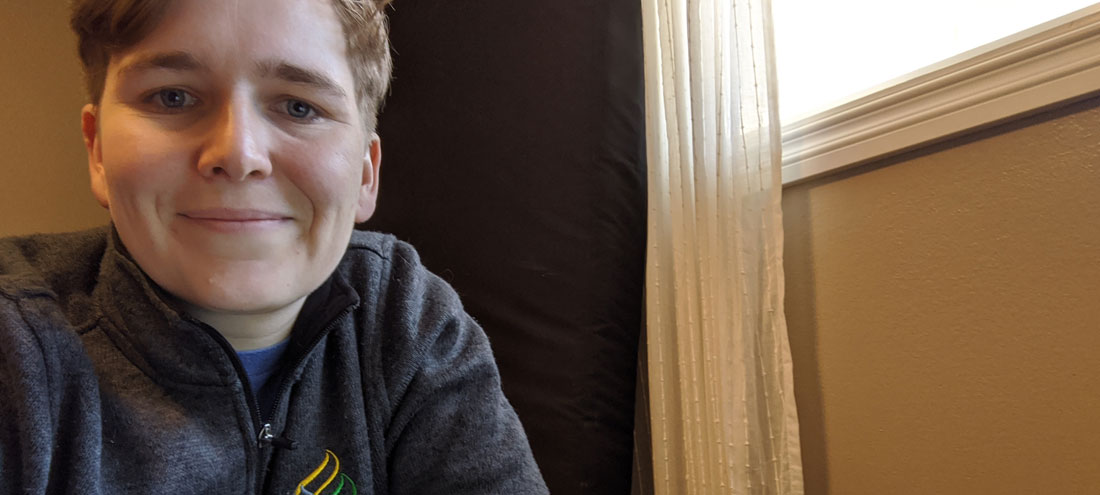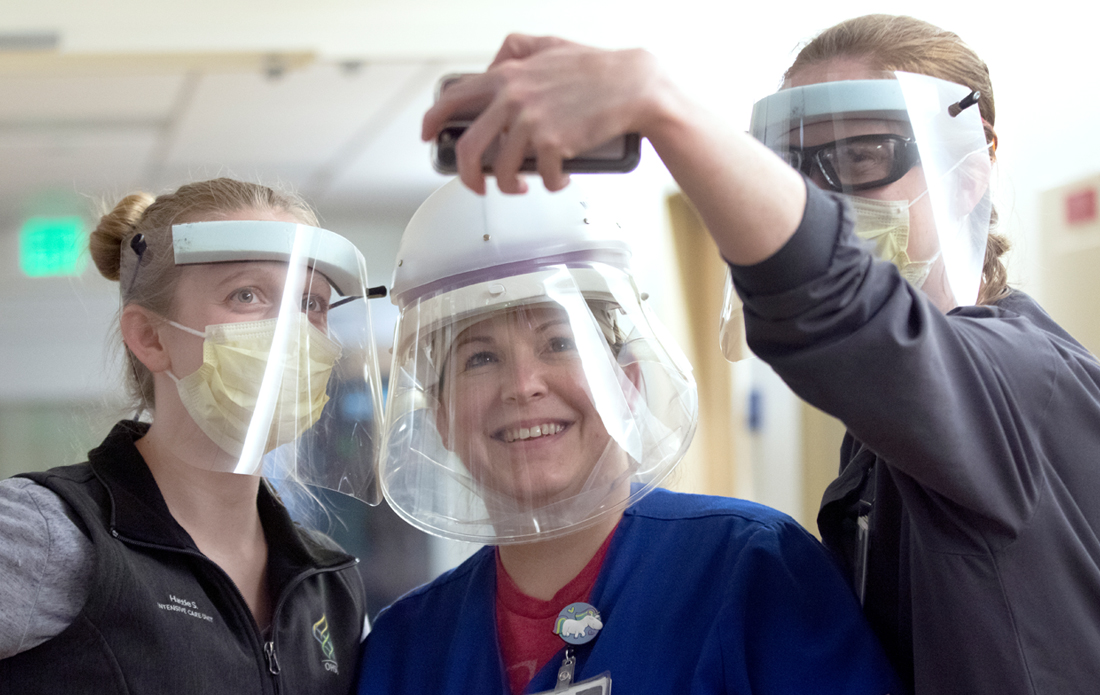Physicians swear an oath to dedicate their lives to serving others. That spirit of service is what led Alix Cooper, MD, to pursue a career in medicine.
Nearly one month ago, Cooper was celebrating their acceptance to the Cascades East Family Medicine Residency Program in Klamath Falls, Oregon, with a Match Day hike around Upper Klamath Lake. A week later, Cooper was asked to begin their residency nearly three months early to help expand the health care workforce amid the COVID-19 pandemic.
“My mom is a retired police officer, and just like that profession, we are expected to step up rather than step back in times of crisis,” they said. “That call to service is what keeps all our frontline health care workers from turning their backs on patients. They continue to provide care, even when that means putting themselves at risk.”
Lending more hands
Each year since the first cohort completed the full four years of the YOUR MD curriculum, more students have graduated early from the OHSU School of Medicine. The school’s competency-based curriculum tracks students’ progress based on skill mastery.
Cooper is among 104 fourth-year OHSU medical students to not only match into residencies, but also complete their MD graduation requirements at the end of winter term. They are also part of a small group stepping straight into their residency programs early, rather than the traditional July 1 start — forgoing hard-earned time off in order to serve patients.
“Going into medicine, when we think of what it will be like in practice, I think most of us imagine ourselves as caregivers. Anytime that dynamic is flipped, it causes us to confront our mortality in a way we usually don’t.”
While graduating early is typical for many OHSU medical students, beginning residency early is not.
“Obviously, it is scary, but I’m not sure there’s much more to it than that,” Cooper said. “Going into medicine, when we think of what it will be like in practice, I think most of us imagine ourselves as caregivers. Anytime that dynamic is flipped, it causes us to confront our mortality in a way we usually don’t.”
The worst fear for Cooper comes from worrying about colleagues and peers — for example, those who have matched into residencies in areas heavily affected by COVID-19, such as New York. Yet Cooper feels honored to be part of a profession composed of such a selfless group of colleagues, the type of people who have your back and will step in to provide much-needed relief.
Helping out wherever and however possible
The community is also stepping up, Cooper explained. For example, medical students all over the country are helping provide childcare for essential workers. Local restaurants have reduced prices or provided free meals for those in financial need. And in Cooper’s hometown of Hood River, Oregon, a windsurfing business has repurposed materials from sails to make face shields for health care workers.
“Everywhere you look, people are looking at their skills and assets and finding creative ways to use them to help,” Cooper said.
From left, Alix Cooper, MD, and German Ferrer, MD, will train at Cascades East Family Medicine Residency Program in Klamath Falls with program director Joyce Hollander-Rodriguez, MD, right.
As Cooper embarks on the next step in their career, the pandemic has reaffirmed their interest in public health, and highlights the integral part public health plays in keeping health care systems running.
“It’s not only about the providers,” they said. “The actions being taken by individuals and workplaces to social distance are saving lives. If you’re feeling like there’s nothing you can do to help, know that just by staying home you are making a difference.”


